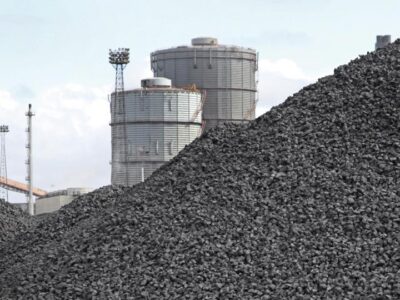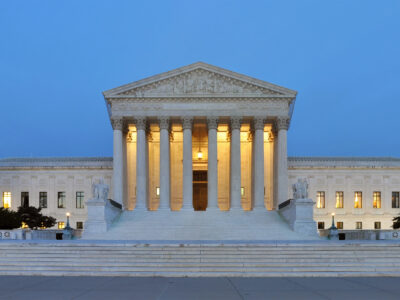Air Quality
Did California Policies Make the LA Fires Worse?
California’s environmental and climate regulations did not make the climate-fueled Palisades and Eaton fires more destructive or harder to fight. Here’s why.
We know climate change is partly to blame. Are California’s environmental policies regarding land and water management also to blame for the supercharged firestorm that has ravaged Los Angeles? It’s not just conspiracy theories on social media or misguided news stories; that’s the position of some congressional Republicans and President-elect Trump, who hold power over future …
Continue reading “Did California Policies Make the LA Fires Worse?”
CONTINUE READINGLA Fires and the Climate Connection
New UCLA research connects the dots between the climate crisis and the supercharged LA wildfires. “Hydroclimate whiplash” means worse floods, droughts, and fires.
Like millions of Angelenos, I’ve been staying indoors and off the roads, glued to the Watch Duty app, radio, and TV coverage as LA is engulfed by these historic fires. The last 48 hours of coverage has focused, understandably, on the firefight and immediate devastation. Now, it’s time to start hearing about the climate connection, …
Continue reading “LA Fires and the Climate Connection”
CONTINUE READINGGovernment by Reconciliation
The reconciliation process avoids the risk of a Senate filibuster. But it comes wth procedural and political complications.
The GOP’s efforts to accomplish a big agenda through the reconciliation process will face serious complications. The Byrd rule limits the use of reconciliation to achieve non-budgetary purposes. A razor-thin House majority and factional warfare will make it hard to reach deals, as will Trump’s (& Musk;s) distaste for compromise.
CONTINUE READINGTrading more LNG exports for more electricity transmission?
Recent Department of Energy report indicates that the trade may be worth it
In a series of recent posts (first post, second post, third post), I examined the permitting reform bill advanced by Senators Manchin and Barrasso in the last Congress. That permitting reform bill is now dead. But the reasons for doing a deal still remain. Decarbonizing the US economy requires a massive increase in renewable energy, …
Continue reading “Trading more LNG exports for more electricity transmission?”
CONTINUE READINGTesla’s Trajectory
What do recent developments teach us about the world?
Recent news about Tesla sheds light on the company’s future, the global EV market, crony capitalism, not to mention the state of American democracy. It may also say something about Elon Musk’s role in the company. That’s a lot of information wrapped up in Tesla’s stock prices and related developments. Overall, this is good news for the environment but bad news for democracy.
CONTINUE READINGThere are Piles of Coal in America’s Christmas Stocking
Coal is piling up, unused, at powerplants across the country
Bad children, supposedly, will get only lumps of coal in their stockings. That could be taken as a metaphor for the anti-environmental programs coming down the line, but I have in mind something a bit less metaphorical. According to a recent report, coal-fired power plants have immense piles of coal – 138 million tons, equal …
Continue reading “There are Piles of Coal in America’s Christmas Stocking”
CONTINUE READINGGood & Bad Environmental News From the U.S. Supreme Court
Escalating Legal Attacks on California’s Longstanding Clean Air Act “Waiver” Authority
This past week, the U.S. Supreme Court issued important orders in two closely-related environmental cases previously decided by the U.S. Court of Appeals for the District of Columbia. Last Friday the justices granted review in Diamond Alternative Energy v. Environmental Protection Agency, agreeing to decide whether fossil fuel manufacturers have legal standing to challenge an …
Continue reading “Good & Bad Environmental News From the U.S. Supreme Court”
CONTINUE READINGShould We Do Permitting Reform?
What is at stake with the Manchin bill.
As Congress wraps up its lame duck session before the new Congress and President arrive in January, there is a lot of debate about whether to move forward on permitting reform within a quickly shrinking window of time. The basis of debate is the Energy Permitting Reform Act (EPRA) co-sponsored by Senators Manchin and Barrasso. …
Continue reading “Should We Do Permitting Reform?”
CONTINUE READINGTrump & Environmental Policy: The Sequel, Part I
Expect a lot of the same, but there could be some new twists.
They say that history never repeats itself, but it often rhymes. As in many sequels, there will be many things we’ve seen before. Much of that consisted in an all-out attack on environmental law. If you hated the original, you won’t enjoy watching the same thing the second time around. This will include massive regulatory rollbacks and expansion of fossil fuels regardless of environmental harms.
CONTINUE READINGOne Bright Spot to COP29 in Baku
The outcome of this year’s U.N. climate conference was depressing. But there was some notable news regarding global methane emissions commitments.
Some have described the United Nations Climate Change Conference (COP29) in Baku as “challenging,” “ineffective,” and “disappointing.” On the one hand, global greenhouse gas emissions have reached an all-time high, and the temperature for 2023 is the highest ever recorded. On the other hand, President-elect Donald Trump announced his intention to withdraw the U.S. from …
Continue reading “One Bright Spot to COP29 in Baku”
CONTINUE READING









